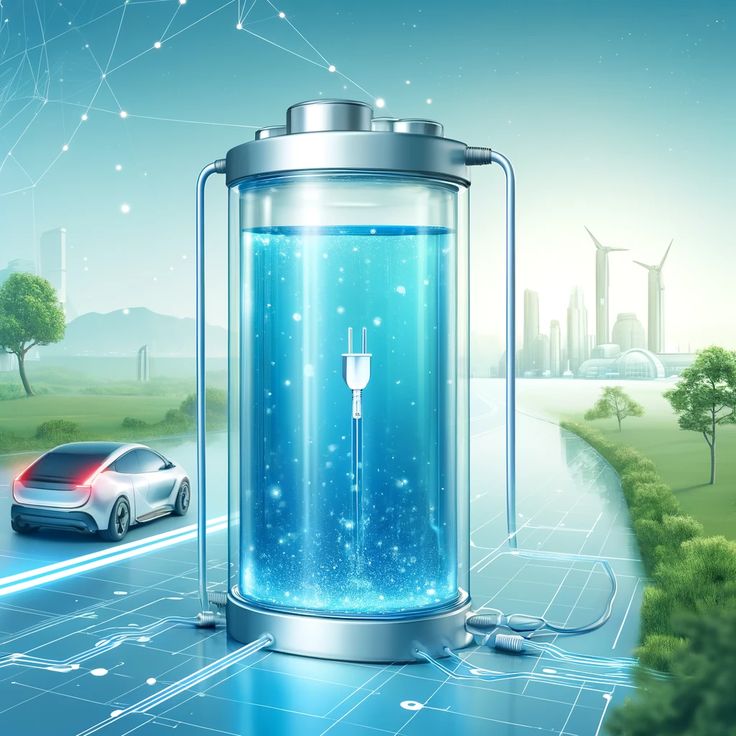Electric Vehicles (EVs) and Battery Technology: Paving the Way for a Sustainable Future in 2025
Electric Vehicles and Battery Technology: In 2025, electric vehicles (EVs) have moved from a niche market to a mainstream solution for sustainable transportation. With advancements in battery technology, charging infrastructure, and increasing consumer demand for eco-friendly alternatives, the automotive industry is undergoing a transformative shift. EVs are seen as a key solution to reduce carbon emissions, combat climate change, and decrease our dependence on fossil fuels. The year 2025 marks a turning point in the evolution of electric mobility, with EVs becoming more affordable, efficient, and accessible than ever before.
This article delves into the innovations in electric vehicles and battery technology in 2025, their impact on the environment and society, and what the future holds for this rapidly growing sector.
The Rise of Electric Vehicles (EVs); Electric Vehicles and Battery Technology
An electric vehicle (EV) runs on electricity stored in rechargeable batteries instead of traditional internal combustion engines that run on gasoline or diesel. The key components of an EV include the electric motor, battery pack, and the electric drivetrain, which together provide a more sustainable and efficient way of transporting people and goods.
In 2025, EVs are becoming increasingly popular for several reasons: Electric Vehicles and Battery Technology
- Environmental Benefits: EVs produce zero tailpipe emissions, reducing the amount of air pollution and greenhouse gases emitted into the atmosphere. This makes EVs a critical part of global efforts to combat climate change and reduce the environmental footprint of transportation.
- Lower Operating Costs: EVs are cheaper to maintain and operate compared to traditional vehicles. They have fewer moving parts, no need for oil changes, and the cost of electricity is lower than gasoline or diesel. Additionally, government incentives and rebates are making EVs more affordable for consumers.
- Improved Performance: EVs are known for their smooth acceleration, quiet operation, and instant torque. Advances in battery technology have also resulted in better range and faster charging times, making EVs more convenient for everyday use.
- Growing Infrastructure: The expansion of EV charging stations and the improvement of battery swapping technologies are making it easier for EV owners to recharge their vehicles. This increased infrastructure is removing one of the major barriers to EV adoption: range anxiety.
Battery Technology: The Heart of the EV Revolution; Electric Vehicles and Battery Technology
The performance of electric vehicles is largely determined by the capabilities of their battery packs. Over the years, battery technology has seen significant advancements in terms of energy density, cost, charging speed, and lifespan. These improvements have played a crucial role in making EVs more practical, affordable, and appealing to consumers.
1. Lithium-Ion Batteries: The Current Standard; Electric Vehicles and Battery Technology
Currently, lithium-ion (Li-ion) batteries are the most commonly used batteries in EVs. These batteries offer a high energy density, long lifespan, and relatively fast charging times compared to other battery chemistries. In 2025, Li-ion batteries continue to dominate the EV market, but innovations are pushing the limits of their performance.
2. Solid-State Batteries: The Next Frontier; Electric Vehicles and Battery Technology
One of the most promising developments in battery technology is the emergence of solid-state batteries. Unlike traditional lithium-ion batteries, which use a liquid electrolyte, solid-state batteries use a solid electrolyte, offering several advantages:
- Higher Energy Density: Solid-state batteries can store more energy in the same space, which translates to longer driving ranges for EVs.
- Faster Charging Times: Solid-state batteries have the potential to charge much faster than current lithium-ion batteries.
- Improved Safety: Solid-state batteries are less prone to catching fire or experiencing thermal runaway, which makes them safer for consumers.
- Longer Lifespan: These batteries have the potential to last longer, reducing the need for frequent replacements.
While solid-state batteries are still in the development and testing phases, major automakers and technology companies are investing heavily in this technology, with the expectation that they will become commercially available in the near future.
3. Lithium-Sulfur Batteries: A Game Changer? Electric Vehicles and Battery Technology
Another breakthrough in battery technology is the development of lithium-sulfur (Li-S) batteries. Li-S batteries have a much higher theoretical energy density than lithium-ion batteries, which could result in lighter batteries with longer driving ranges. They are also cheaper to produce due to the abundance of sulfur compared to lithium. However, challenges related to their cycle life and stability are still being worked on. Researchers are optimistic that Li-S batteries could become viable for EVs in the near future.
4. Fast-Charging Technology; Electric Vehicles and Battery Technology
In 2025, the charging speed of EVs has significantly improved, reducing the time it takes to recharge an electric vehicle to a matter of minutes instead of hours. The introduction of ultra-fast charging stations, capable of delivering 350 kW or more, allows drivers to charge their EVs to 80% in less than 20 minutes. With advancements in charging infrastructure, the convenience of using an EV is no longer a major concern.
5. Recycling and Sustainability of EV Batteries; Electric Vehicles and Battery Technology
As the number of EVs on the road continues to grow, there is a significant focus on the recycling and sustainability of batteries. In 2025, battery manufacturers and automakers are working to improve recycling processes to reduce the environmental impact of used batteries. Companies are investing in technologies that can efficiently recover valuable materials like lithium, cobalt, and nickel from spent batteries, which can be reused in the production of new batteries.
Impact of Electric Vehicles on Society: Electric Vehicles and Battery Technology
The widespread adoption of EVs is having a profound impact on society in several ways:
1. Reducing Carbon Emissions and Air Pollution; Electric Vehicles and Battery Technology
Transportation is one of the largest contributors to global greenhouse gas emissions, particularly in urban areas. EVs, by eliminating tailpipe emissions, play a significant role in reducing carbon emissions and air pollution. This shift to electric transportation is crucial in meeting global climate targets and improving air quality in cities.
2. Economic Opportunities and Job Creation; Electric Vehicles and Battery Technology
The transition to electric vehicles is creating new opportunities in industries such as electric power generation, battery manufacturing, and EV infrastructure development. Companies that specialize in EV production, charging stations, and battery technology are seeing rapid growth. This shift also brings opportunities for job creation in manufacturing, research and development, and renewable energy sectors.
3. Energy Independence and Sustainability; Electric Vehicles and Battery Technology
The shift to EVs is contributing to energy independence by reducing reliance on imported oil. By powering EVs with renewable energy sources like solar and wind, countries can reduce their carbon footprint and increase sustainability. Additionally, EVs can act as mobile energy storage units, providing grid stabilization and enabling energy sharing through vehicle-to-grid (V2G) technology.
4. Changing Consumer Behavior; Electric Vehicles and Battery Technology
As EVs become more mainstream, consumers are increasingly prioritizing sustainability in their purchasing decisions. The availability of more affordable and diverse EV models, coupled with government incentives and rebates, has made it easier for people to make the transition from gasoline-powered vehicles to electric ones.
Challenges Facing the EV Industry in 2025: Electric Vehicles and Battery Technology
While the progress of EVs and battery technology in 2025 is impressive, there are still some challenges that need to be addressed:
1. Charging Infrastructure Expansion
Although the number of charging stations has grown significantly, the infrastructure is still lagging in many regions, especially rural areas. Governments and private companies must continue to invest in expanding fast-charging networks and ensuring universal access to charging stations.
2. High Initial Costs
Despite price reductions in recent years, EVs are still generally more expensive than traditional vehicles, primarily due to the cost of the battery. As battery prices continue to decrease and production scales up, the cost of EVs is expected to become more competitive with internal combustion vehicles in the coming years.
3. Range Anxiety
While EV ranges have improved significantly, some consumers still fear that they won’t be able to drive long distances without needing to recharge. As battery technology improves and more fast-charging stations become available, this concern will continue to diminish.
The Future of Electric Vehicles and Battery Technology: Electric Vehicles and Battery Technology
The future of electric vehicles (EVs) and battery technology is bright. In 2025, we are witnessing remarkable advancements that are driving the mass adoption of EVs. With continued innovation in battery technology, infrastructure development, and regulatory support, EVs are poised to become the dominant mode of transportation by the end of the decade. By improving efficiency, reducing costs, and expanding the accessibility of charging networks, electric vehicles are helping to build a sustainable future for generations to come.
The widespread use of EVs will not only help combat climate change but also drive economic growth, enhance energy security, and revolutionize the automotive industry. As battery technologies continue to improve and solid-state batteries or lithium-sulfur batteries become viable options, the future of electric mobility is set to transform the way we think about transportation.











Here valuable information about how to become a IT infiltrator.
Knowledge is imparted in a easily digestible manner.
One can grasp several procedures for penetrating networks.
Besides, there are practical examples that reveal how to carry out these expertise.
how to become a hacker
Comprehensive info is constantly revised to keep up with the recent advancements in network protection.
Special attention is centered around workable execution of the obtained information.
Be aware that every procedure should be applied lawfully and according to proper guidelines only.
One X Bet stands as a top-tier gambling provider.
Featuring a broad variety of sports, 1XBet caters to a vast audience globally.
This One X Bet app created for both Android as well as iPhone players.
https://www.actuabd.com/archives/pgs/posedenie_volos.html
Players are able to install the 1xBet app via their site and also Google’s store for Android.
For iOS users, the application can be downloaded through the official iOS store easily.